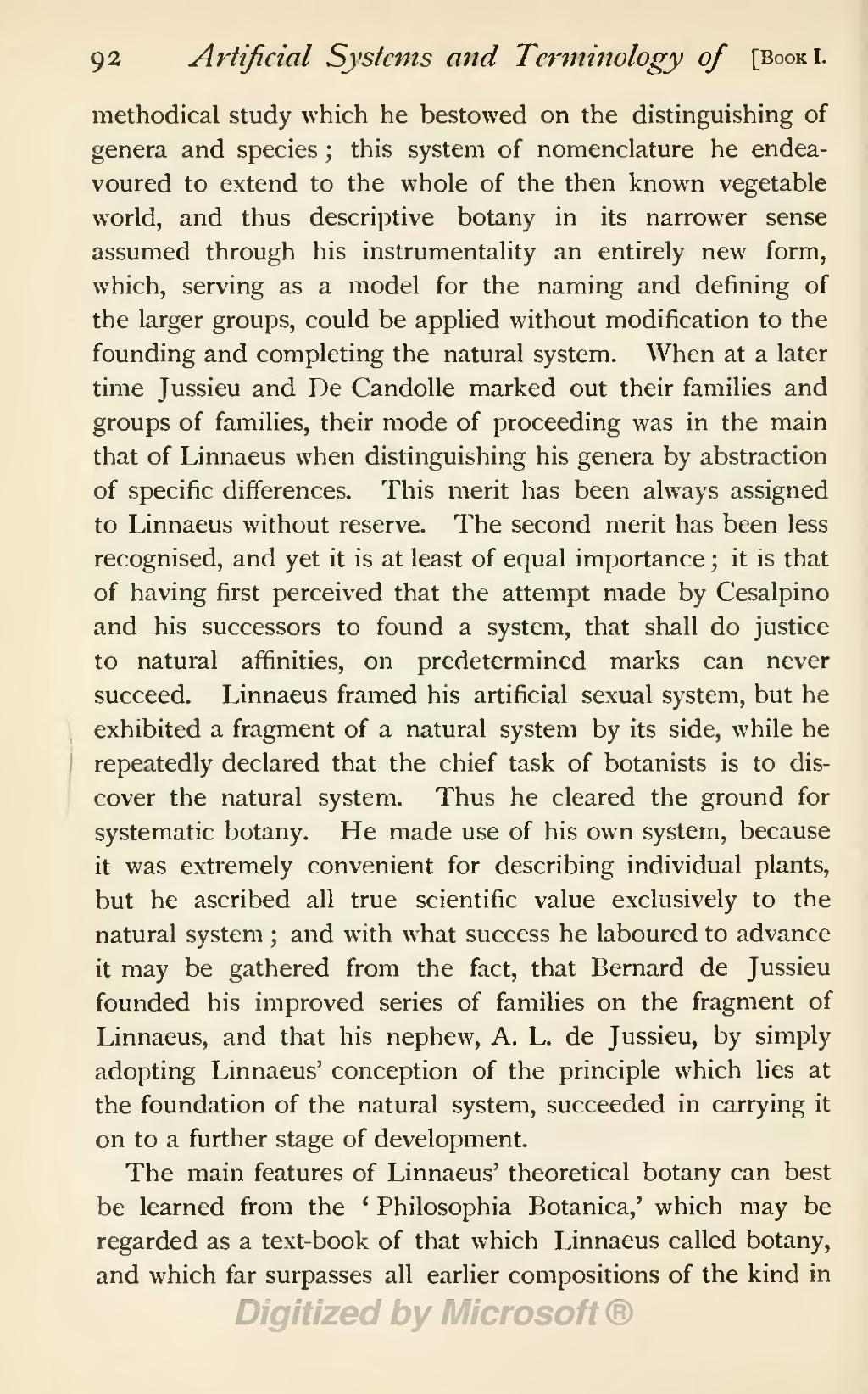methodical study which he bestowed on the distinguishing of genera and species; this system of nomenclature he endeavoured to extend to the whole of the then known vegetable world, and thus descriptive botany in its narrower sense assumed through his instrumentality an entirely new form, which, serving as a model for the naming and defining of the larger groups, could be applied without modification to the founding and completing the natural system. When at a later time Jussieu and De Candolle marked out their families and groups of families, their mode of proceeding was in the main that of Linnaeus when distinguishing his genera by abstraction of specific differences. This merit has been always assigned to Linnaeus without reserve. The second merit has been less recognised, and yet it is at least of equal importance; it is that of having first perceived that the attempt made by Cesalpino and his successors to found a system, that shall do justice to natural affinities, on predetermined marks can never succeed. Linnaeus framed his artificial sexual system, but he exhibited a fragment of a natural system by its side, while he repeatedly declared that the chief task of botanists is to discover the natural system. Thus he cleared the ground for systematic botany. He made use of his own system, because it was extremely convenient for describing individual plants, but he ascribed all true scientific value exclusively to the natural system; and with what success he laboured to advance it may be gathered from the fact, that Bernard de Jussieu founded his improved series of families on the fragment of Linnaeus, and that his nephew, A. L. de Jussieu, by simply adopting Linnaeus' conception of the principle which lies at the foundation of the natural system, succeeded in carrying it on to a further stage of development.
The main features of Linnaeus' theoretical botany can best be learned from the 'Philosophia Botanica,' which may be regarded as a text-book of that which Linnaeus called botany, and which far surpasses all earlier compositions of the kind in

